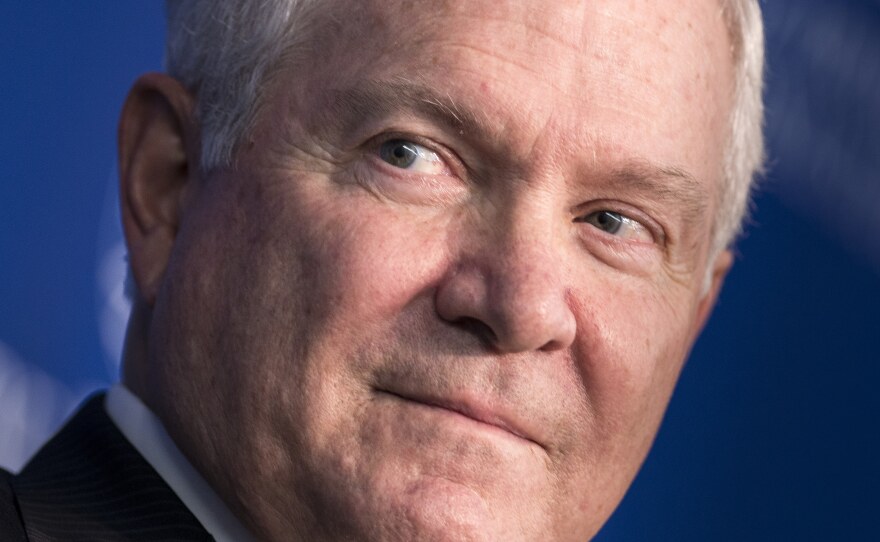Former Defense Secretary Robert Gates' new book, Duty, Memoirs of a Secretary at War, paints a picture of a White House suspicious of military leaders and their motives.
In the book, Gates criticizes both President Obama and Vice President Joe Biden over issues like the Afghanistan war. It's a case study of civilian-military tensions that are as old as the Republic.
A President Wary Of Being Boxed In
Gates takes the reader inside the White House, where a debate was on about whether to send more troops to Afghanistan. Senior officers were pushing for tens of thousands more, making their case publicly.
Obama was furious, convinced they were trying to box him in.
"Do they resent me that I never served in the military?" Obama says, according to Gates. "Do they think that because I'm young I don't see what they're doing?"
That quote doesn't speak highly of the president, said retired Colonel Pete Mansoor, an Iraq war veteran who worked closely with Gen. David Petraeus. Mansoor now teaches at Ohio State.
"To think that the military was purposely trying to jam him means that he knows very little about military leaders," Mansoor says. "They were giving their best military advice."
But the Pentagon brass have never been shy about pushing its own agenda in Washington -- everything from policy issues to weapons systems -- even with presidents who were veterans.
Peter Feaver, who served on the White House National Security Council under both Presidents Clinton and George W. Bush, says the Obama administration's suspicion of the military is not surprising.
"When you have Democrats coming in, that can be intensified because of the perception that the military as an institution leans in the Republican, conservative direction," Feaver says.
A Historically Strained Relationship
That suspicion and tension has a long history. Lincoln was openly belittled by his Army commander George McLellan, and he later fired him. Harry Truman famously dismissed Gen. Douglas MacArthur for insubordination.
Richard Kohn, who studies civilian-military relations at the University of North Carolina Chapel Hill, says as the military has modernized, so too has the wariness of civilian leaders.
"Rarely have administrations come in since World War II without some suspicions of the military, their power, their influence, the senior people's desire to shape the outcome of decisions and policies," he says.
Kohn says he's surprised that Gates would come out with a book now. The norm in Washington is to hold off writing a book until a president leaves office.
"It speaks of something of a betrayal of trust," Kohn says. "It simply weakens the president, and if Mr. Gates wants to serve the military he loves, he wouldn't weaken its loyalty and its ability to do its duty for this commander-in-chief for the next three years."
A Deficit Of Trust
For his part, Gates says he didn't want to wait until Obama's term is up in 2017. He says too many issues need more immediate attention.
"Certainly, he's raised fair criticisms that should be aired," Feaver says. Yet the book will only lead the Obama administration to be more wary of the military, he adds.
"Because now they're looking at everyone else in the room, and wondering who should they leave out of the room because that person might be in the process of writing a savage critique of them," he says.
Gates acknowledges in his book that the civilian-military relationship is often tense. He criticizes admirals and generals who seek what he calls "a high public profile," talking too much about politically sensitive issues. Gates can't imagine why they tweet and blog.
But he faults political leaders for using the military as props to sell their own policies, knowing those in uniform are popular with the public.
Politicians, even in the White House, he writes, can't have it both ways.
Copyright 2014 NPR. To see more, visit www.npr.org.






